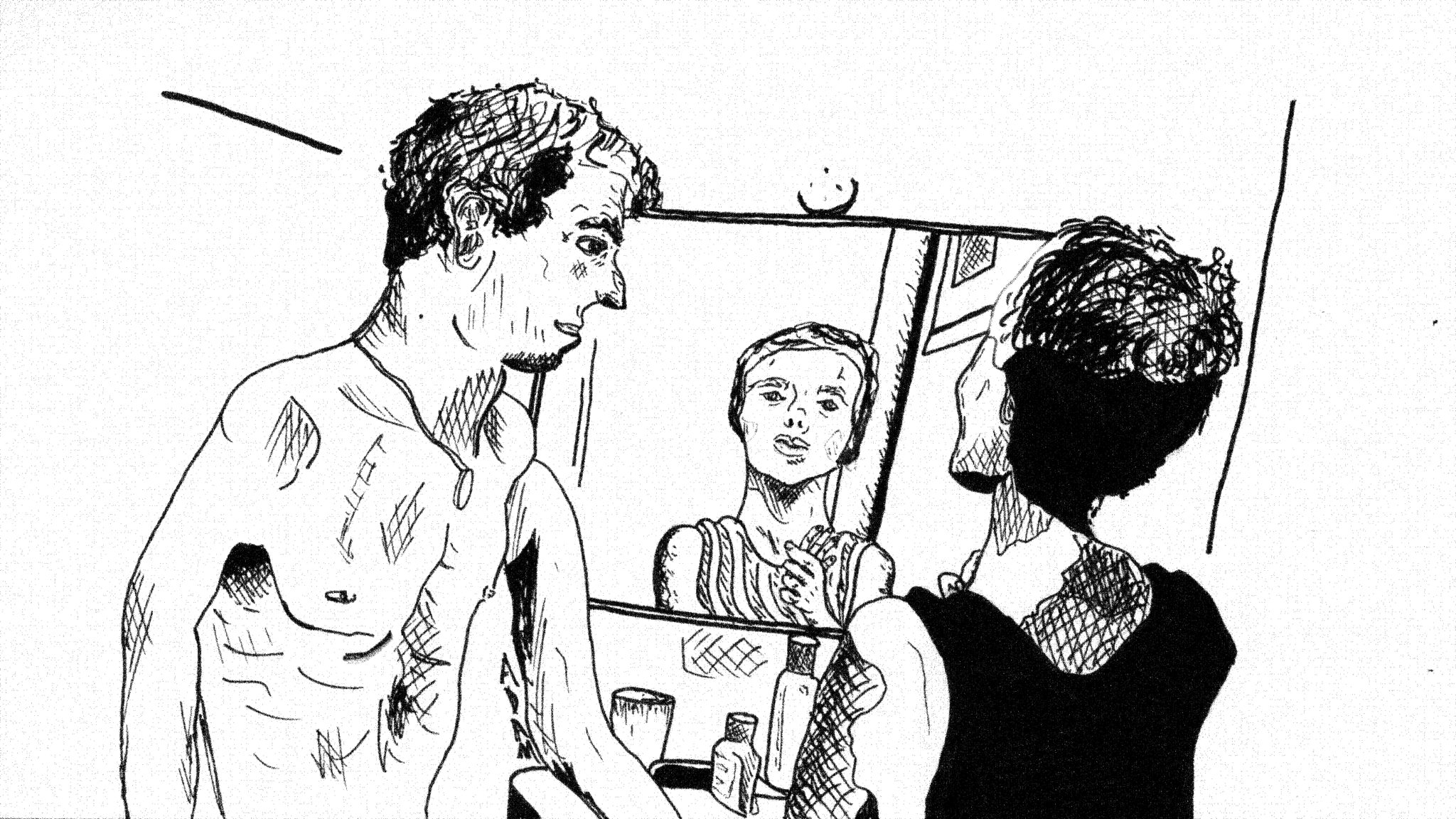
When it comes to dramatic romance films, I occasionally can be lactose intolerant. In all honesty, cheese is only good served melted between slices of freshly toasted bread. The best way to escape cheap cheese, in my opinion, is to find the films that did it first and did it best. In his 1960s feature-length directorial debut “Breathless,” Jean-Luc Godard portrays a runaway criminal, Michel, and his on-and-off American journalist girlfriend, Patricia. The film left me, well, breathless.
“All right, I’ll count to eight, and if you haven’t smiled, I’ll strangle you.”
Ten minutes in and Michel has already caught my attention with his absurdist humor. With a slightly comical undertone, Godard took a lighthearted approach to this crime-drama-romance film.
The narrative itself breathes the romanticization of irresponsibility and spontaneity upon which young adults thrive. Documenting leisurely drives down country roads, cheeky disguises in plain sight and long afternoons in bed, Godard evoked a sense of nonchalance that was uncharacteristic of classic crime films.
“Breathless” is a drama film that never truly becomes dramatic. The carefree, “I’ve got nothing to lose” mentality Michel embodies diminishes the significance of the film’s every beat. It’s funny how his frustratingly unspoken attitude of acceptance appears to be the point of contention among critics. Yes, he just stole a car. Yes, he just killed a police officer with it. But, so what?
The highlight of the film is definitely Michel’s relationship with Patricia. She isn’t, what we call in the 21st century, “whipped.” Of the many who have fallen for Michel’s devilish charms and juvenile arrogance, Patricia asserts a degree of independence. Contrary to the emblematic “boy meets girl, boy gets girl” narrative, she plays a rather invigorating game of hard to get. Michel has met his match, compatible in a sense where she, too, doesn’t give too many shits.
Having never thematically reached a definite climax, the “rising” and “falling” action of the film could only be determined if you follow the narrative logically. Some may argue that the lack of explicit suspense in this supposed crime film makes it a dull film, but do we really need another commercial blockbuster featuring more explosions than characters? Sometimes we just need 90 minutes of just mildly amusing, clever getaways.
Michel’s frustrating sense of charisma is epitomized by the film’s opening lines: “What is your greatest ambition in life? To become immortal … and then die.”
Godard’s irreverent approach to filmmaking in “Breathless” captures the spirit of French New Wave cinema, which rejects traditional French cinema. Carrying an aesthetic that doesn’t take itself too seriously, “Breathless” includes shaky shots and excessive jump cuts that add a homemade quality to the film. To be fair, the film’s next-to-nothing budget did have something to do with its lack of dollies and camera stabilizers, but it’s almost as if the unadorned nature of the film’s visual composition echoed the genre’s carefree philosophy. The goal was to establish a creative identity and to be effortless, much like how Godard himself explains: “Photography is truth. Film is truth 24 times per second.”
Adding to Godard’s comical subtext, there’s something amusing to be said about the film’s historical significance. Often referenced as the first contemporary use of the jump cut, what was credited as artistic genius is also a happy accident: Aside from its ability to alter the perception of time, jump cuts were prominent in “Breathless” because Godard shot too much, had too little time and was forced to cut the film down.
Of the little footage Godard managed to keep, my favorite scene from the film is Patricia and Michel’s conversation about love and sex. Cooped up in a charming little hotel room, the pair’s conversation touched on contemporary dilemmas relevant to this day: “A woman would never want to do in eight seconds what she wants to do in eight days. Eight seconds or eight days, it’s all the same. Why not eight centuries?”
Patricia and Michel’s stoic exchanges underline their mutually apathetic relationship. Though quite matter-of-fact, Michel and Patricia’s conversation discusses profound ideas of love and lust. Loosely playing on the stereotype of “the player who wants to settle down with the one girl he can’t get,” Michel’s desire for affection, though expressed in a passive-aggressive, almost childish way, draws a philosophical contrast with Patricia’s view on their relationship. The film, as interpreted through Michel and Patricia’s relationship, begs the question: What if the guy doesn’t end up getting the girl?
Despite being roughly the age of my grandmother, this film is refreshing. Being a young film about young people, made by young filmmakers, Jean-Luc Godard’s “Breathless” is a creative experiment that is witty, timeless and very much revolutionary.
Tiffany Ng | t.ng@yale.edu







